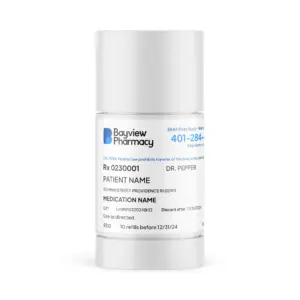Depression is a complex and widespread mental health condition, impacting millions globally. It manifests in various forms, from persistent sadness to a complete loss of interest in activities once enjoyed. Fortunately, numerous medications are available to help manage these symptoms. Among the most prescribed antidepressants are Prozac, Zoloft, and Lexapro. This article delves into their effectiveness, benefits, and potential side effects, equipping you with the knowledge to understand which might be most suitable for your needs.
Antidepressants are a cornerstone in the treatment of depression, designed to alleviate the symptoms and improve overall quality of life. These medications work by altering the balance of neurotransmitters in the brain—chemicals that significantly influence mood and emotional states. Prozac, Zoloft, and Lexapro belong to a particularly well-known class of antidepressants known as selective serotonin reuptake inhibitors (SSRIs).
Neurotransmitters are the brain’s chemical messengers, playing a crucial role in mood regulation and emotional balance. In individuals with depression, these chemicals can become imbalanced, leading to the symptoms associated with the condition. Antidepressants work to restore this balance, thereby easing depressive symptoms and improving emotional well-being.
SSRIs function by specifically targeting serotonin, a neurotransmitter crucial for mood stabilization. By inhibiting the reabsorption (reuptake) of serotonin into the neurons, these medications increase the availability of serotonin in the synaptic space. This increase can help uplift mood and reduce the symptoms of depression over time.
The development of SSRIs marked a significant advancement in psychiatric medication, offering a safer and more targeted approach than earlier antidepressants. Introduced in the late 20th century, these medications quickly became favored due to their efficacy and relatively mild side effect profile. Their evolution continues to shape modern mental health treatment, providing hope for those struggling with depression.

Prozac, also known by its generic name fluoxetine, was one of the first SSRIs introduced to the pharmaceutical market. Since its approval in the late 1980s, Prozac has become a household name, renowned for its efficacy and broad range of applications in mental health.
Comprehensive Benefits of Prozac
Prozac’s benefits extend beyond treating depression. It is also effective for anxiety disorders, obsessive-compulsive disorder (OCD), and panic disorder. Its long half-life means it remains in the body longer, offering a steady effect and reducing the impact of a missed dose. This characteristic makes it particularly appealing for individuals who may struggle with consistent medication adherence.
Long-term Effects and Considerations
While Prozac is generally well-tolerated, understanding its long-term effects is essential for those considering it as a treatment option. Long-term use can lead to sustained improvement in depressive symptoms, but it may also require ongoing monitoring by healthcare providers to ensure continued effectiveness and safety.
Managing Side Effects of Prozac
Though Prozac is typically well-received, some individuals may experience side effects such as nausea, headaches, drowsiness, or insomnia. It’s vital to communicate with a healthcare provider about any adverse effects to manage them effectively. Adjustments to dosage or timing can often alleviate these symptoms, ensuring a more comfortable treatment experience.
Zoloft: An Overview
Zoloft, or sertraline, is another popular SSRI that has been widely prescribed since its approval in the early 1990s. Known for its versatility, Zoloft is often the go-to medication for depression, anxiety disorders, PTSD, and OCD.
Wide-ranging Benefits of Zoloft
Zoloft’s effectiveness in treating a broad spectrum of mental health conditions is well-documented. It is particularly beneficial for individuals with both depression and anxiety, as it targets multiple symptoms simultaneously. This dual-action makes it an appealing choice for those dealing with complex mental health profiles.
Zoloft’s Impact on Quality of Life
For many patients, Zoloft significantly enhances quality of life by reducing the severity of depressive and anxious symptoms. Users often report improved mood, better sleep, and increased energy levels, all contributing to a more balanced and fulfilling life.
Addressing Side Effects of Zoloft
Common side effects of Zoloft may include dizziness, dry mouth, fatigue, and changes in appetite. However, these side effects are typically mild and often diminish as the body adjusts to the medication. Open dialogue with a healthcare provider can help manage these effects, ensuring that the benefits of the medication outweigh any temporary discomfort.
Lexapro: An Overview

Lexapro, also known as escitalopram, is a newer SSRI that has gained popularity for its effectiveness and tolerability. It is often favored for its unique properties and relatively low incidence of side effects.
Notable Benefits of Lexapro
Lexapro is renowned for its rapid onset of action, often prescribed for major depressive disorder and generalized anxiety disorder. Its streamlined molecular structure allows for efficient targeting of serotonin pathways, resulting in fewer side effects and a quicker response time for patients.
Lexapro’s Efficacy in Diverse Populations
Research indicates Lexapro’s efficacy across various demographics, including adolescents and older adults. Its favorable side effect profile makes it an attractive option for individuals sensitive to medication, providing relief without significant discomfort.
Understanding Lexapro’s Side Effects
Though generally well-tolerated, Lexapro may cause side effects such as nausea, sexual dysfunction, or increased sweating. These effects are usually mild and may decrease as the body adjusts to the medication. Regular communication with a healthcare provider can help mitigate these issues, ensuring a smoother treatment process.
Prozac vs. Zoloft vs. Lexapro: Comparing Effectiveness
When comparing Prozac, Zoloft, and Lexapro, it’s essential to consider individual needs and how each medication may affect you differently. The choice often hinges on personal medical history, symptom profile, and response to past treatments.
Evaluating Efficacy in Treating Depression
All three medications have been proven effective in treating depression, but individual responses can vary significantly. Prozac may provide a more energizing effect for some, whereas Zoloft or Lexapro might offer superior anxiety relief. Tailoring treatment to individual needs is crucial for maximizing therapeutic outcomes.
Onset of Action and Treatment Timeline
Lexapro is often noted for its quicker onset of action, meaning individuals may start noticing improvements in symptoms sooner compared to Prozac or Zoloft. Understanding the expected timeline for symptom improvement can help manage expectations and ensure a more satisfactory treatment experience.
Side Effect Profiles: A Comparative Analysis
While all three medications share similar potential side effects, Lexapro is often reported to have a more favorable side effect profile, especially concerning sexual side effects. Comparing these profiles helps in selecting a medication that aligns with personal comfort and lifestyle.
Choosing the Right Antidepressant
Selecting the appropriate antidepressant should be a collaborative decision between you and your healthcare provider. Several factors, including personal medical history, existing health conditions, and potential drug interactions, should be considered to ensure optimal treatment.
Crafting Personalized Treatment Plans
A healthcare provider may recommend starting with one medication and adjusting based on your response and any side effects experienced. Personalized treatment plans involve ongoing assessment and adaptation, ensuring that the chosen medication continues to meet your evolving needs effectively.
The Importance of Monitoring and Adjustments
Regular follow-up appointments allow your healthcare provider to monitor progress, make necessary dosage adjustments, and address any concerns that arise during treatment. These check-ins are vital for fine-tuning the treatment plan and ensuring sustained improvement in symptoms.
Incorporating Lifestyle and Non-Medication Strategies
In addition to medication, incorporating lifestyle changes and non-medication strategies can enhance treatment outcomes. Exercise, therapy, and stress management techniques complement pharmaceutical approaches, offering a comprehensive path to mental health recovery.
Conclusion
In the battle against depression, Prozac, Zoloft, and Lexapro each offer unique benefits and potential side effects. Understanding their differences can help guide you and your healthcare provider in making an informed decision about which medication may be best suited for your treatment plan. Remember, managing depression is a journey, and finding the right medication can be a significant step toward improving your mental health and overall well-being.
By exploring the options and working closely with a healthcare provider, you can find an effective treatment plan tailored to your needs, helping you regain control and improve your quality of life. Embracing a multifaceted approach that includes medication, lifestyle modifications, and supportive therapies can lead to sustained mental health and a more fulfilling life.



